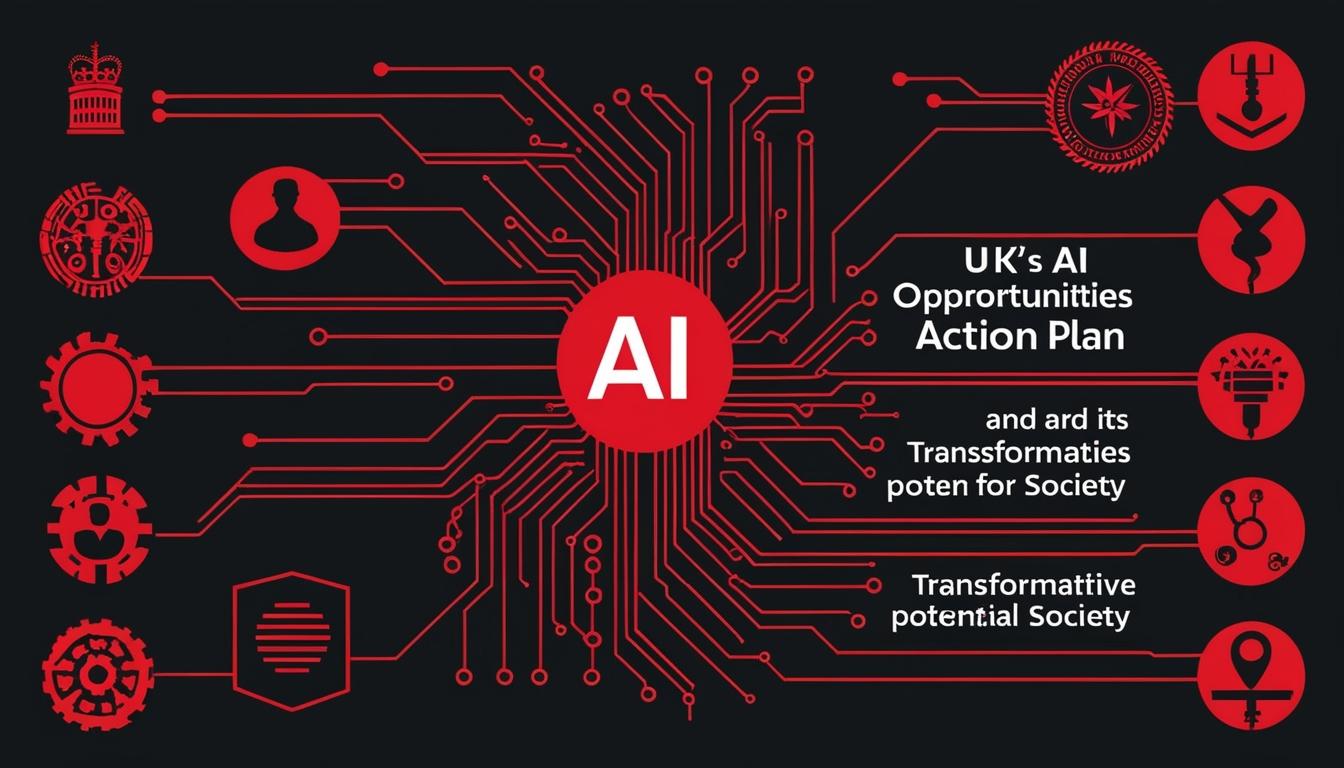Earlier this week, UK Prime Minister Keir Starmer unveiled the government’s AI Opportunities Action Plan (AOAP), describing Artificial Intelligence (AI) as “the defining opportunity of our generation.” In his statement, Starmer forecasted that nearly every aspect of society would experience the transformative effects of AI in the coming years.
The AOAP is set against a backdrop of ambitious growth targets, with plans to increase AI computing power under public control by a factor of 20 by 2030. Alongside this, the government aims to facilitate the mass deployment of AI technology and establish dedicated AI growth zones to accelerate the integration of AI into various sectors.
The AOAP comprises three foundational pillars: laying the groundwork for AI, changing lives through AI adoption, and nurturing a homegrown AI sector to secure the UK's future in this technological landscape.
The first pillar, laying the foundations, focuses on developing robust, secure, and sustainable AI infrastructure. This involves creating a long-term strategy to meet the UK's increasing AI infrastructure needs, which is to be drafted over the next six months and funded by a decade-long investment commitment. Central to this initiative is the expansion of the AI Research Resource (AIRR), the establishment of AI Growth Zones aimed at accelerating the development of AI data centres, as well as initiatives aimed at fostering education and diversity within the field.
The second pillar places emphasis on changing lives through mass AI adoption. Starmer articulated the need for the public and private sectors to work in concert to facilitate this widespread integration. He noted that the public sector should lead by example by adopting and scaling AI operations, thereby enhancing public service quality. Simultaneously, businesses in the private sector must dismantle obstacles to AI adoption to drive economic growth and productivity.
The third and final pillar focuses on cultivating homegrown AI capabilities, promoting the establishment of ‘UK National Champions’ within the sector. One notable initiative is the creation of a new unit dubbed ‘UK Sovereign AI’, designed to bridge the gap between public and private sectors and enhance support for both emerging and established AI companies.
The collaborative nature of the AOAP has garnered positive responses since its announcement, with the government confirming over £14 billion worth of investments and the creation of thousands of new jobs within just 48 hours. The Local Government Association expressed approval of the plan, recognising the significant role local government plays within the public sector, which employs over 1.32 million people with a budget of approximately £127.1 billion.
However, despite the favourable reception, some experts have voiced concerns regarding the AOAP. Martin Riley, Chief Technology Officer at Bridewell, Microsoft’s lead cybersecurity partner in the UK for Critical National Infrastructure (CNI), highlighted the necessity for clarity around cybersecurity requirements, the protocols for sharing large datasets, and strategies for addressing the existing skills shortage within the industry.
In addition, Gaia Marcus, Director of the Ada Lovelace Institute—a research body dedicated to ensuring AI and data benefit society—called for more public engagement and elaboration on regulatory roles to foster understanding. “We look forward to hearing more about how departments will be incentivized to implement these systems safely as they move at pace,” he remarked.
As the government’s proposal is regarded as progressive, the potential challenges associated with AI adoption, particularly cybersecurity issues, remain critical points of discussion. Addressing these challenges will be essential to ensure that the benefits of AI are maximized while mitigating potential risks during the implementation process.
Source: Noah Wire Services
